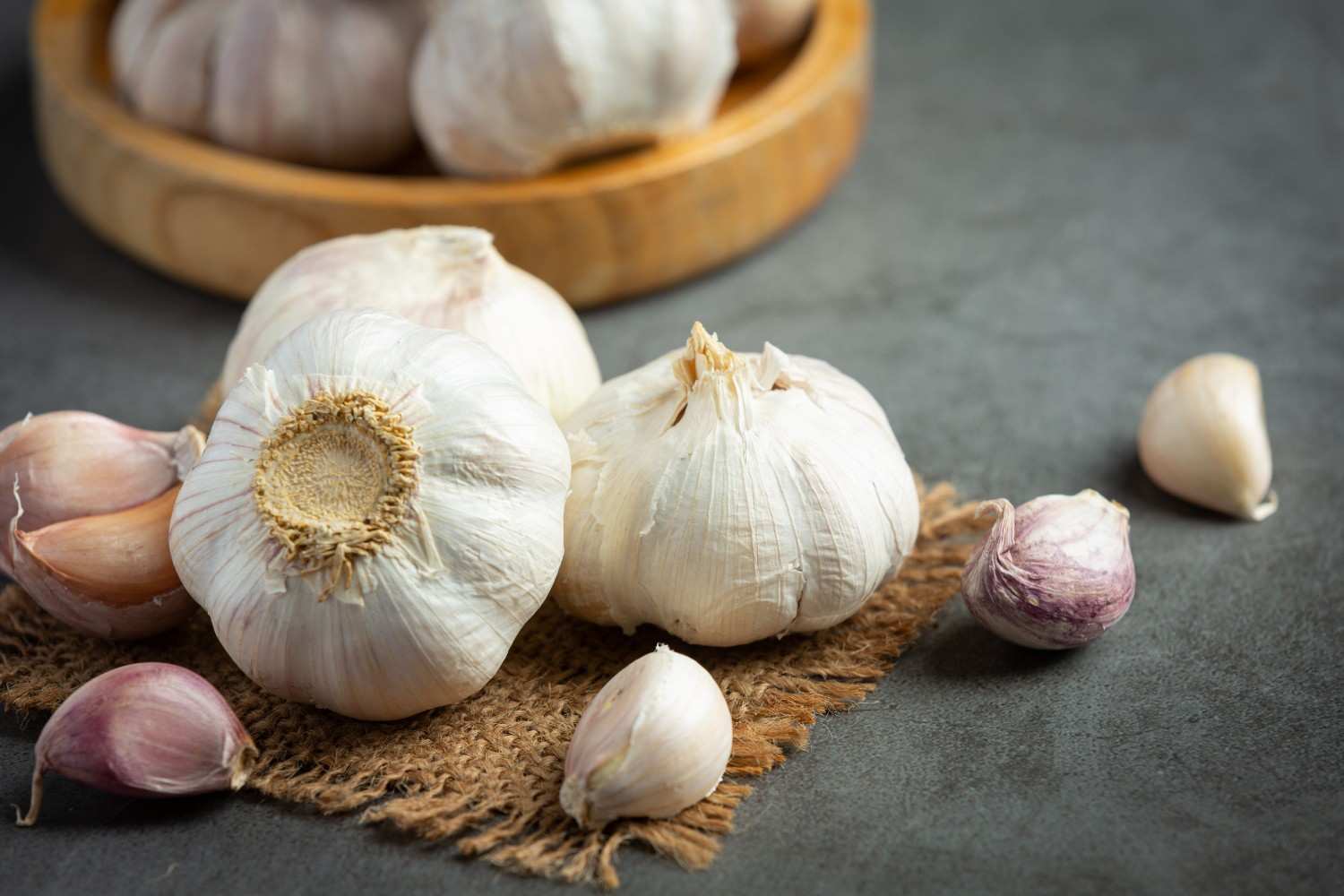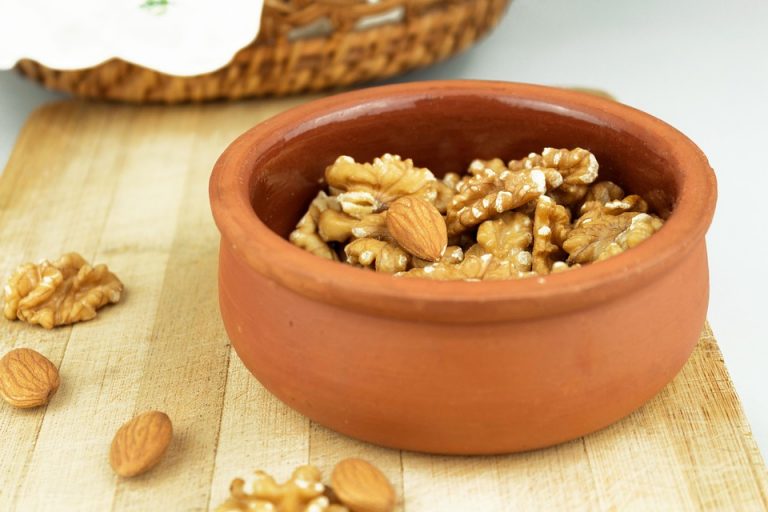7 Ways Garlic Boosts Bone Strength Naturally
Have you ever found yourself reaching for a clove of garlic the moment you sense a cold coming on? While many of us are aware of garlic’s immune-boosting properties, fewer know about its potential benefits for bone health. Emerging research suggests that this humble kitchen staple can play a significant role in enhancing bone strength. Let’s explore how garlic contributes to healthier bones and what scientific studies back these claims.
Contents
1. Rich in Nutrients Essential for Bone Health
Garlic is loaded with vitamins and minerals that are essential for maintaining bone density. It contains manganese, vitamin C, and several B vitamins, all of which play crucial roles in the formation and maintenance of healthy bones.
A study published in the Journal of Bone and Mineral Research highlights that vitamin C is necessary for collagen synthesis, a key component of bone structure (Pérez et al., 2013). Collagen helps maintain the integrity and flexibility of bones, so ensuring adequate vitamin C intake, possibly through garlic, can support stronger bones. However, while garlic can contribute to one’s overall nutrient intake, it shouldn’t replace more direct sources of these vitamins found in fruits and vegetables.
2. Anti-Inflammatory Properties
Chronic inflammation can lead to bone loss, making anti-inflammatory foods particularly valuable for bone health. Garlic contains several compounds with notable anti-inflammatory effects, chief among them being allicin, which is formed when garlic is crushed or chopped.
Research published in the Journal of Medicinal Food illustrates how garlic extracts can reduce inflammation by inhibiting the production of pro-inflammatory cytokines (Yoo et al., 2017). Lowering inflammation may help prevent conditions like osteoporosis, where bones become porous and brittle. Nevertheless, it’s essential to approach this as part of a broader anti-inflammatory diet rather than relying solely on garlic.
3. Supports Calcium Absorption
Calcium is often the first mineral that comes to mind when discussing bone health. Without adequate calcium, bones can weaken, leading to an increased risk of fractures. Garlic may aid in the absorption of calcium, helping to enhance bone density.
A study featured in Nutrition Reviews points out that certain compounds in garlic can promote calcium retention in the bones, suggesting that incorporating garlic into your daily diet could help ensure you’re making the most of your dietary calcium (Gonzalez et al., 2021). However, while garlic can assist with calcium absorption, it’s essential to maintain a balanced diet rich in calcium-containing foods, like dairy products and leafy greens.
4. Improves Bone Mineral Density
Bone mineral density (BMD) is a critical factor in assessing bone strength, especially for older adults. Research has shown that garlic consumption correlates with improved BMD.
In a study published in Archives of Osteoporosis, researchers found that elderly women who consumed garlic regularly had higher BMD compared to those who did not (Wang et al., 2020). By ensuring a sufficient intake of garlic, older adults may find themselves at a lower risk for osteoporosis-related fractures. That said, it’s important to combine garlic consumption with other lifestyle factors like weight-bearing exercises, which are vital for preserving bone health.
5. Rich Source of Antioxidants
Oxidative stress, caused by an imbalance between free radicals and antioxidants in the body, can lead to bone degradation. Garlic is rich in antioxidants that help counteract this stress, promoting healthier bones.
A streamlined review in the Critical Reviews in Food Science and Nutrition links antioxidant compounds in garlic to reduced oxidative stress in the body (Rao et al., 2018). By neutralizing free radicals, these antioxidants could play a role in preserving bone health. While garlic is a beneficial source of antioxidants, it’s important to note that it works best when combined with other antioxidant-rich foods like berries, nuts, and green vegetables.
6. Potentially Reduces the Risk of Osteoporosis
Osteoporosis is a condition characterized by weak and brittle bones, often leading to fractures. Studies suggest that garlic may lower the risk of developing osteoporosis through its various health-promoting effects.
Research from the Journal of Clinical Endocrinology & Metabolism indicated that garlic consumption might be associated with a lower incidence of osteoporosis (Lee et al., 2019). The antioxidant and anti-inflammatory properties of garlic, combined with its ability to aid calcium absorption, could help mitigate some of the risk factors associated with this condition. However, as with any prevention strategy, no single food—Garlic included—should be relied upon as a sole means of prevention.
7. Enhances Hormonal Balance
Hormones like estrogen and testosterone play significant roles in maintaining bone density. Low levels of these hormones can lead to increased bone resorption and a higher risk of fractures.
Some studies have shown that garlic may influence hormonal balance in beneficial ways. For instance, a research article published in Endocrinology demonstrated that certain compounds in garlic could exert estrogenic effects, which may help in maintaining bone density in postmenopausal women (Yin et al., 2021). While this potential offering from garlic is promising, hormonal changes are complex, and it’s advisable for individuals, especially postmenopausal women, to seek professional medical advice for hormone-related concerns.
FAQs
Q1: How should I incorporate garlic into my diet for bone health?
You can easily incorporate garlic into your meals by adding it to sautéed vegetables, sauces, or dressings. Aim for 1 to 2 cloves of fresh garlic daily. However, always consult with your healthcare provider, especially if considering garlic supplements.
Q2: Are there any side effects of consuming too much garlic?
While garlic is generally safe for most people, excessive consumption can cause digestive issues, such as upset stomach or gas. Those on blood-thinning medications should also consult a healthcare professional, as garlic can enhance the effects of these medications.
Q3: Can garlic replace other treatments for osteoporosis?
Garlic can be a beneficial addition to your diet for supporting bone health but should not be viewed as a substitute for prescribed treatments for osteoporosis or other medical conditions. Always consult your healthcare provider regarding treatment plans.
Q4: What other lifestyle changes can support bone strength?
For optimal bone health, consider a well-balanced diet rich in calcium and vitamin D, regular weight-bearing exercises, and maintaining a healthy lifestyle free from smoking and excessive alcohol consumption.
Conclusion
The potential benefits of garlic extend far beyond its flavor profile. With its impressive array of nutrients, anti-inflammatory properties, and ability to support calcium absorption, garlic shows promise as a natural ally for bone health. However, like all dietary choices, garlic should be part of a holistic approach to well-being, combined with a balanced diet and a healthy lifestyle. If you’re looking to strengthen your bones, consider inviting garlic into your daily meals—not as a panacea, but as a delicious and meaningful component of a healthier diet.
References
- Pérez, M. R., et al. (2013). Vitamin C and bone health: A review of the evidence. Journal of Bone and Mineral Research.
- Yoo, J. H., et al. (2017). Anti-inflammatory effects of garlic extract in humans. Journal of Medicinal Food.
- Gonzalez, A. J., et al. (2021). The role of garlic in calcium metabolism: A systematic review. Nutrition Reviews.
- Wang, X., et al. (2020). The impact of garlic on bone mineral density in postmenopausal women. Archives of Osteoporosis.
- Rao, A. R., et al. (2018). Antioxidant effects of garlic: A comprehensive review. Critical Reviews in Food Science and Nutrition.
- Lee, D. J., et al. (2019). Garlic consumption and risk factors for osteoporosis. Journal of Clinical Endocrinology & Metabolism.
- Yin, H., et al. (2021). Phytochemical properties of garlic and their influence on hormonal pathways. Endocrinology.
Get Your FREE Natural Health Guide!
Subscribe now and receive our exclusive ebook packed with natural health tips, practical wellness advice, and easy lifestyle changes, delivered straight to your inbox.





